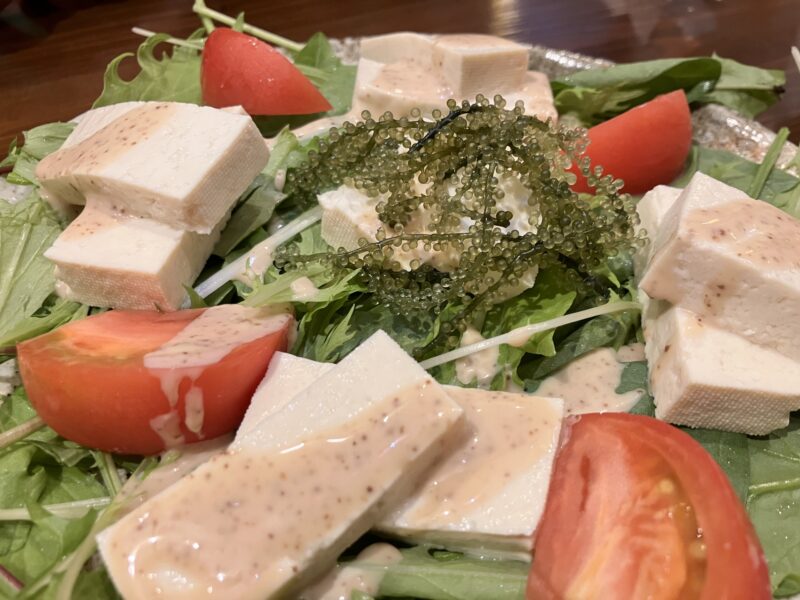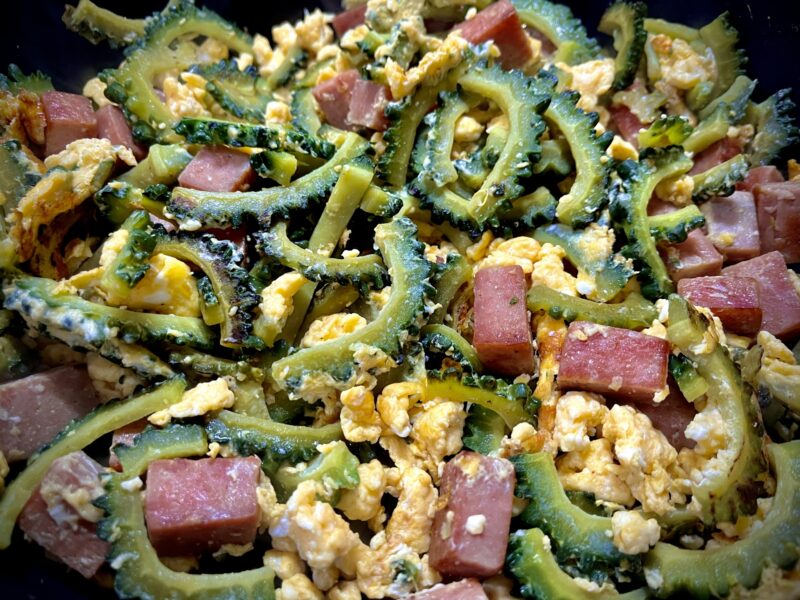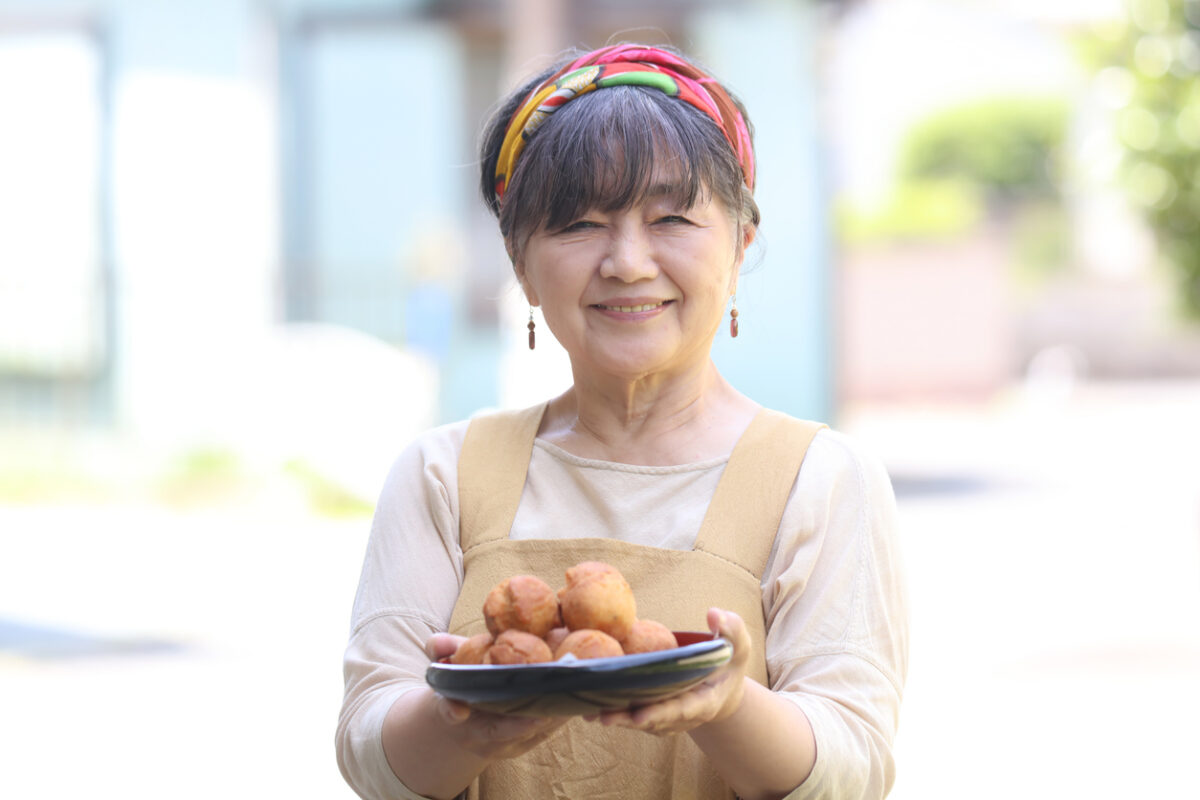Okinawa; An Island of Healthy Life
Okinawa is a beautiful island located in the southern part of Japan. With its stunning beaches, clear blue waters, and unique culture, Okinawa attracts visitors worldwide. The indigenous Ryukyuan culture is still prevalent in Okinawa, adding to its charm and distinctiveness. In such an island of nature and relaxation, Okinawa healthy food is something we should learn in relation with the longevity of Okinawa people.
It relies on local ingredients such as sweet potatoes and bitter melon, which is a testament to the island’s commitment to longevity. The people of Okinawa often live well into their 90s and beyond. They are a living testament to the health benefits of their diet.
Okinawa, a harmonious blend of natural splendor, storied past, and warm hospitality, is a haven for those seeking a healthy lifestyle.
Longevity of Okinawa People
The longevity of the people in Okinawa, Japan, has attracted attention from researchers worldwide. The Okinawan people have one of the highest life expectancies in the world, with a large number of centenarians among their population.
Factors contributing to their long lifespan include a their healthy diet. It’s rich in fruits, vegetables, and seafood and a strong sense of community and social support. The Okinawans also have a tradition of moderate physical activity and stress-reducing practices such as tai chi and meditation. Overall, the longevity of Okinawa people is a combination of good genetics, healthy lifestyle choices, and a supportive environment.
In this article, we will focus on a food that we may be able to transfer to our lives: their healthy cuisine.
Key Ingredients of Okinawan Cuisine: Unveiling the Secrets
Okinawan cuisine is renowned for its unique flavors, health benefits, and longevity-promoting qualities. Some key ingredients in Okinawan cuisine include purple sweet potatoes, bitter melon, tofu, seaweed, and pork.
Purple sweet potatoes are rich in antioxidants and have a naturally sweet taste.
Bitter melon (Goya) is famous for its bitter flavor, but they say it has various health benefits, including lowering blood sugar levels.
Island Tofu (Shima-Dofu) is a versatile ingredient that is high in protein and commonly used in Okinawan dishes.
Seaweed is a staple in Okinawan cuisine and is packed with essential nutrients and minerals.

Pork is a popular protein choice in Okinawan dishes, particularly in dishes like Okinawa soba.
These key ingredients play a crucial role in creating the distinct flavors and health benefits that Okinawan cuisine is known for.
Traditional Okinawan Recipes: Delicious and Nutritious Dishes
Traditional Okinawan recipes offer a unique blend of flavors and nutrition that have been passed down through generations. These dishes emphasize fresh, local ingredients such as vegetables, tofu, and seafood.
Some popular Okinawan dishes include Rafute (braised pork belly), Goya Champuru (bitter melon stir-fry), and Mozuku (seaweed salad).
These dishes are not only delicious but also nutritious, as they are low in fat and rich in vitamins and minerals. Okinawan cuisine is known for promoting longevity and overall health. It is a great choice for those looking to enjoy flavorful meals while maintaining a healthy lifestyle.
Health Benefits of Okinawa’s Staple Foods: Discover the Science
Bitter Melon (Goya)
Goya, also known as bitter melon, is a staple ingredient in Okinawan cuisine, offering numerous health benefits. Rich in vitamins and minerals, such as vitamin C, vitamin A, and potassium, Goya supports immune function, eye health, and electrolyte balance.
Additionally, Goya is renowned for its ability to regulate blood sugar levels, making it beneficial for individuals with diabetes or those seeking to manage their blood sugar. Furthermore, the high antioxidant content in Goya helps reduce inflammation, protect against chronic diseases, and promote overall wellness.
Incorporating Goya into your diet as part of Okinawa healthy food choices can contribute to improved health and longevity.

Island Tofu (Shima-Dofu)
Okinawa island tofu, a traditional staple of Okinawan cuisine, offers a plethora of health benefits.
Made from soybeans, it is rich in plant-based protein, essential amino acids, and calcium, promoting muscle strength, bone health, and overall wellness.
Unlike processed tofu, Okinawa island tofu retains its natural nutrients and is often fermented, enhancing its nutritional profile and aiding digestion.
Additionally, it contains isoflavones, plant compounds with antioxidant and anti-inflammatory properties that help reduce the risk of chronic diseases such as heart disease and cancer. Isoflavones from fermented soy are ready for easy absorption as their sugar is parted off.
Low in saturated fat and cholesterol, Okinawa island tofu supports heart health and may contribute to maintaining healthy cholesterol levels.
Incorporating Okinawa island tofu into your diet as part of Okinawa healthy food choices can be a delicious and nutritious way to support your health and well-being.
Seaweeds
Sea vegetables commonly consumed in Okinawa provide a wide array of health benefits. Rich in vitamins, minerals, and antioxidants, these sea vegetables support overall health and well-being. They are particularly high in iodine, essential for thyroid function and metabolism regulation.
Additionally, sea vegetables are a good source of fiber, aiding in digestion and promoting gut health. Their high antioxidant content helps reduce inflammation, protect against oxidative stress, and lower the risk of chronic diseases such as heart disease and cancer.
Furthermore, sea vegetables contain unique compounds such as fucoidans and alginate, which have been shown to have immune-boosting properties and may help enhance the body’s defense against infections and illnesses.
Incorporating sea vegetables into your diet as part of Okinawa healthy food choices can contribute to improved health, vitality, and longevity.
Pork
Pork, a staple in Okinawan cuisine, offers several health benefits when consumed as part of a balanced diet.
Okinawan pork is often leaner than other varieties, with a lower fat content and higher levels of unsaturated fats. Thus it is a heart-healthy protein option.
Additionally, Okinawan pork is rich in essential nutrients such as protein, vitamins B6 and B12, zinc, and selenium, which are vital for energy production, immune function, and overall health. These nutrients play a crucial role in supporting muscle growth, repairing tissues, and maintaining healthy skin, hair, and nails.
Furthermore, Okinawan pork contains conjugated linoleic acid (CLA). CLA is a type of healthy fat associated with various health benefits, including reduced inflammation, improved insulin sensitivity, and enhanced weight management.
When consumed in moderation and as part of a balanced diet, Okinawan pork can be a delicious and nutritious addition to Okinawa healthy food choices, supporting overall health and well-being.
Incorporating Okinawa Healthy Foods into Your Diet: Practical Tips for Wellness
A Natural Supplement from a Japanese Breakfast Staple
Miso Soup, a fermented soy paste soup, is a staple of Japanese breakfast. Recent studies have found various secrets of Miso that make Japanese people among the healthiest in the world.
However, it is not easy to incorporate food from a different dietary culture into your daily diet. Then, a supplement may be the solution.
Juveriente®’s Effisoy, launched in 2016, based on fermented soy bean germ extract has been loved as a natural menopause relief and anti-aging since its launching in 2016.
Its primary function is to boost the weakened synthesis of a hormone precursor, DHEA. It’s safe as it only heals the natural synthesis function. The hormone boost doesn’t provide the only relief from menopausal symptoms. But, it also supports various aging and hormonal imbalance issues and including insomnia.
Here are some of the real product reviews in our Amazon shop.
“Restful sleep finally!!”, “I Am Now Free of Hot Flashes!!”, “Lifesaver”






